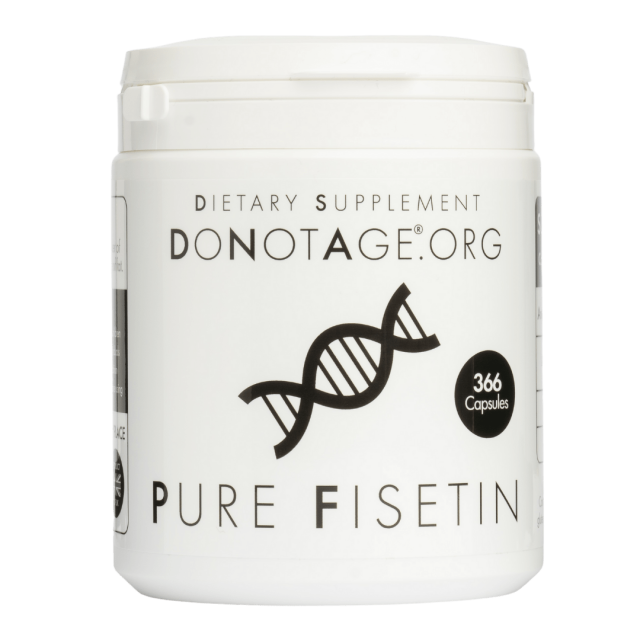Fisetin, a plant flavonoid found in many fruits and vegetables, has gained attention for its potential anti-aging benefits:
Senolytic Properties: Fisetin is recognized for its senolytic abilities, which means it can target and help clear senescent cells. These are cells that have stopped dividing and can contribute to aging and age-related diseases. Removing them can potentially slow down the aging process.
Reduction of Inflammation: Fisetin has been shown to possess anti-inflammatory properties. Chronic inflammation is a significant contributor to aging and many age-related diseases, so reducing inflammation can be beneficial for longevity and overall health.
Antioxidant Effects: As an antioxidant, fisetin helps combat oxidative stress, which damages cells and is a key factor in aging. By neutralizing free radicals, fisetin can protect cells from damage, thereby potentially delaying the onset of age-related cellular changes.
Improved Brain Health: Some studies suggest that fisetin may support brain health, possibly improving memory and preventing cognitive decline associated with aging. This is particularly relevant in the context of neurodegenerative diseases like Alzheimer's.
Support for Cardiovascular Health: Fisetin may also contribute to cardiovascular health by improving blood vessel function and reducing the risk factors for heart disease, a common concern with aging.
Potential in Longevity Research: Research on fisetin is part of a growing field of study into how natural compounds can affect aging. Its potential effects on longevity are being explored, adding to our understanding of how we might influence the aging process at a cellular level.


